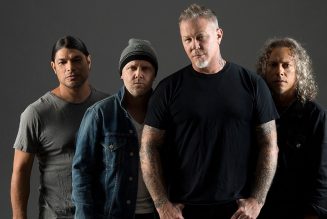Enterprise
Former refugee drives into green transport market with e-bikes
Thursday August 10 2023

Electric Bikes Founder Sibomana Athanase during the interview at his home in Nairobi on August 1, 2023. PHOTO | LUCY WANJIRU | NMG
After narrowly surviving the conflict in the eastern Democratic Republic of Congo in 1996, which led to the death of nearly six million, Sibomana Athanase found himself at a United Nations High Commission for Refugees (UNHCR) camp, all alone, without a family, and nowhere to call home.
The then five-year-old was devastated but never lost hope in life.
“I was a refugee from 1997 until 2016 when I had to leave the camp. To cut a long story short, I found myself in Kenya, where I spent four years on city streets before meeting a bishop who helped me in ways I can’t explain,” Athanase told BD Life.

Electric Bikes Founder Sibomana Athanase during the interview at his home in Nairobi on August 1, 2023. PHOTO | LUCY WANJIRU | NMG
From a young age, Athanase realised he had an art talent. Naturally, he leaned on it to hustle on the harsh Kenyan streets, making carton box houses, before graduating to metal works.
Commonly called Gady by his friends and customers, the Class Three dropout has made a name for himself through bicycle customisation and modification.
“An idea of a type of bike just comes into my mind, after which I put it down on paper in drawing and then to practical work. I have never entered a classroom to study engineering or anything related to making bikes. The only certificate I own is for computer packages which I studied just for fun,” says Mr Athanase.
Mr Athanase, now 32, makes chopper electric bikes from locally assembled materials.
A chopper is a customised motorcycle that first emerged in California, in the United States, in the late 1950s. It employs modified steering angles and lengthened forks for a stretched-out appearance.
“I purchase my metals from the Industrial Area, where I make my designs, such as frame types. If it’s the handle, I bend the metal into a shape that fits the bike. The cost of materials is high, but that has never deterred me. It costs me up to Sh170,000 to completely assemble an e-bike.
He makes bikes for different purposes, including the three-wheeled pavik bike 24, a double-driving mode bike with battery and pedal carrying only one person.
His product portfolio also includes a Longo motorbike which carries up to four people, and a wheelbarrow bike, used to carry loads.

An electric-powered bicycle on display at Sibomana Athanase workshop in Kayole, Nairobi on August 1, 2023. PHOTO | LUCY WANJIRU | NMG
Commonly referred to as pedelecs, the bikes use rechargeable batteries with an integrated electric motor to assist in propulsion and accelerate up to 32 kilometres per hour. The Custom pavik Bike 24 can travel up to 90 kilometres on a full charge.
The law classifies pedelecs as bicycles rather than mopeds or motorcycles, a feature that exempts them from the more stringent laws regarding certification and operation.
At Roam Motors, a Nairobi-based assembler, it costs about Sh300,000 to buy an electric motorcycle. The chopper electric bikes cost as low as Sh50,000 and up to Sh200,000, depending on the type.
“The first bike I sold was a pedal custom pavik at Sh40,000 in 2021. I urgently needed some cash by then. So far, I have sold three. Generally, my prices are much lower than those of my competitors,” says Mr Athanase.
Apart from the functionality aspect, Mr Athanase has incorporated some elements of modern technology by using a light-emitting diode (LED) headlight and shiny goldish paint to attract customers.

An electric-powered bicycle on display at Sibomana Athanase workshop in Kayole, Nairobi on August 1, 2023. PHOTO | LUCY WANJIRU | NMG
“With an e-bike, you will still have to incur the same maintenance cost for brakes and regular wear and tear,” he says.
Besides the high cost of materials, other expenses include the motor alone, which he buys from an importer at an average of Sh60,000.
“I am also looking for partners to help financially so we can build the brand and expand, not only in Kenya but also to other African countries,” he adds.
Electric motorcycles and e-bikes are gaining traction locally. As of July 2023, about 200 motorcycles had been assembled for the market.

An electric-powered bicycle on display at Sibomana Athanase workshop in Kayole, Nairobi on August 1, 2023. PHOTO | LUCY WANJIRU | NMG
The potential to disrupt commercial and public transport, affordable electricity compared to fossil fuels, and innovative financing models are driving the sector’s growth.
“My e-bikes promote environmental responsibility while providing a healthy, fun, and economical mobility alternative,” he points out.









